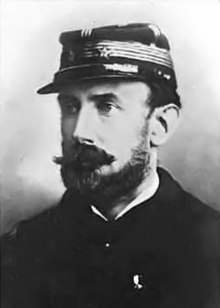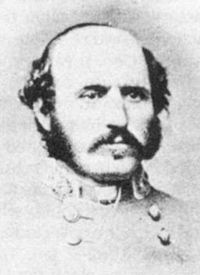The Fort Pillow Massacre
In my last blog I discussed the Northern myth of the white supremacist Southerners. Now, I'd like to discuss the misleading stories of Confederate massacres on black Federal troops. The most famous of all would be the Fort Pillow massacre. Saying there weren't atrocities committed at Fort Pillow would be an outright lie and I'm not going to lie. The truth is there were some pretty depraved acts committed there.
I've heard every excuse in the world given for why unarmed men were shot down. The most famous excuse was because the flag was never lowered. It is true the flag was never lowered. The fort being overran so suddenly, there probably wasn't enough time to lower the flag and raise a white banner of surrender. While we know there were atrocious acts committed by Confederate troops at Fort Pillow, we hardly ever hear the rest of the story.
Prior to the assault at the fort, Federal troops had captured seven of Forrest's subordinates and killed them. Lieutenant Willis Dodd had been captured by Colonel Fielding Hurst of the 6th Tennessee (U.S.) Cavalry and had been tortured to death. Dodd's face had been skinned, his nose cut off, his under jaw disjointed, his private parts cut off, among other depredations to his body. Forrest's men were furious at the conduct of the Tennessee (U.S.) troops who were using the war as an excuse to plunder the property of Confederate soldiers.
Also, never told in the story of Fort Pillow are the whiskey barrels. The Federal officers in charge of the fort believed black soldiers were inferior to white soldiers. They had barrels of whiskey placed around the fort believing the black soldiers would need liquid courage to fight. During the truce, there were many witnesses to the conduct of the intoxicated black soldiers toward the waiting Confederate cavalrymen outside the fort. By the time the truce ended and the assault began, the Confederate's were furious from the taunting. As Shelby Foote once mentioned, the Confederate's had to fight their way into the fort, losing good men in the process and as soon as they breached the walls, the black troops threw down their weapons to surrender. Someone in the Confederate ranks basically said, "The hell you surrender, you had your chance."
Prior to the assault at the fort, Federal troops had captured seven of Forrest's subordinates and killed them. Lieutenant Willis Dodd had been captured by Colonel Fielding Hurst of the 6th Tennessee (U.S.) Cavalry and had been tortured to death. Dodd's face had been skinned, his nose cut off, his under jaw disjointed, his private parts cut off, among other depredations to his body. Forrest's men were furious at the conduct of the Tennessee (U.S.) troops who were using the war as an excuse to plunder the property of Confederate soldiers.
Also, never told in the story of Fort Pillow are the whiskey barrels. The Federal officers in charge of the fort believed black soldiers were inferior to white soldiers. They had barrels of whiskey placed around the fort believing the black soldiers would need liquid courage to fight. During the truce, there were many witnesses to the conduct of the intoxicated black soldiers toward the waiting Confederate cavalrymen outside the fort. By the time the truce ended and the assault began, the Confederate's were furious from the taunting. As Shelby Foote once mentioned, the Confederate's had to fight their way into the fort, losing good men in the process and as soon as they breached the walls, the black troops threw down their weapons to surrender. Someone in the Confederate ranks basically said, "The hell you surrender, you had your chance."
The Crater Massacre
The Battle of the Crater is the other instance of black troops being massacred after having surrendered. One historian named Bryce Suderow calls the Battle of the Crater the wars worst massacre. One must take a look at the numbers to see just how mad this massacre truly was. An entire division of black troops attacked the Crater at Petersburg and 219 were killed. That makes his statement almost laughable in itself. But, there were black troops killed there after having surrendered.
Confederate Major General William Mahone
As soon as the explosion blew a hole in Confederate Major General Bushrod Rust Johnson's lines, Lee called up Major General Mahone's division as reserves to fill the gap. General Mahone arrived to find General Johnson busy eating breakfast and seemingly uninterested in repairing the breach in his line. Mahone turned away disgusted and led his men toward the crater. He received word from numerous retreating troops saying they had witnessed unarmed Confederate soldiers shot down after having surrendered. The United State Colored Troops had shouted "No Quarter!" upon entering Confederate lines. Mahone halted his division and informed his troops that Union black soldiers were not giving quarter and he didn't expect his men to give quarter. Thus, led forward by their general, the arrived on the scene to give the black troops the same treatment they were dishing out. Today, over a century later, we only hear about the black troops who were gunned down by the evil Southerners for no reason at the Battle of the Crater.
Lieutenant Joshua Lazaras Moses
In the last blog about minorities serving in the Confederate Army, I mentioned Jewish Lieutenant Joshua Lazaras Moses. He commanded an artillery battery from South Carolina. At the end of the war he was sent to Fort Blakely on the east side of Mobile Bay.
After the Federal troops overran the small Confederate force at Blakely, Lieutenant Moses and his men were quickly surrounded. The Confederate troops surrendered, but the United States Colored Troops refused to give quarter. They opened fire on Joshua Moses's men. Lieutenant Moses shouted, "For God's sake, spare my men, they have surrendered!"
As white Federal officers commanding the black troops attempted to stop the slaughter, Lieutenant Moses and two white Federal officers were gunned down by the Union Colored Troops. Confederate officers complained of the actions of the Federal troops at Blakely and argued that some of the white commanding officers had encouraged the black troops to show no quarter. The date was April 9, 1865, the war basically over, there being no Confederate government to demand a response from the U.S. government. The incident is one of the fewest talked about massacres of the war.
I haven't written this blog to make the North appear evil and the South innocent. I know there were massacres by both sides. I wrote this blog to show how only one side is portrayed on television and by Northern historians. I don't mind the telling of history as it was, but if someone considers themselves a true historian, they will tell both sides without bias. This is all the people of the South have ever asked for.






